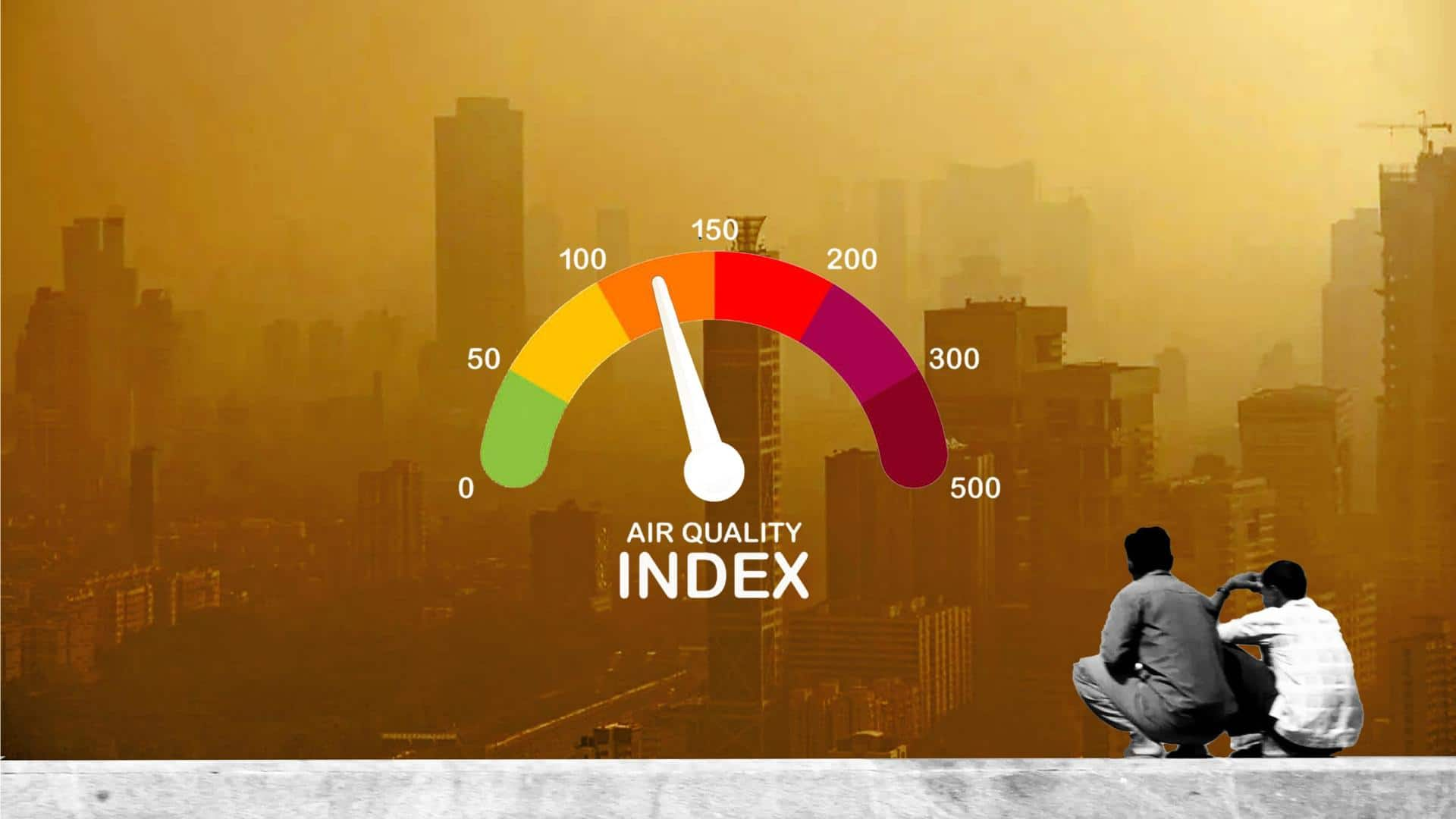
Pollution alert! Mumbai's air quality becomes worse than Delhi
What's the story
The overall Air Quality Index (AQI) in Mumbai dropped to 315 on Thursday morning, which is regarded as "very poor" air quality for breathing.
According to the System of Air Quality and Weather Forecasting And Research (SAFAR) data, Mumbai now has a worse AQI than Delhi.
The national capital recorded 263 AQI in the "poor" category this morning.
Health hazard
Precautions against air pollution
With Mumbai's AQI becoming worse than Delhi's, experts are urging people to take precautionary measures like wearing masks while going out, especially for those with respiratory problems.
Several studies have linked cardiovascular problems with air pollution levels.
Precautions that could be helpful are using N-95 or K-95 masks while stepping outdoors, staying indoors while the AQI is poor, or limiting outdoor activities.
IMD
Delhi's air and weather report on Thursday morning
Air quality in Delhi showed a minor improvement on Thursday; however, it still stayed in the "poor" category.
The minimum temperature in the capital was 8.3 degrees Celsius, slightly below the season's average.
As per the India Meteorological Department (IMD), the maximum temperature of the day is set to around 25 degrees Celsius, with the relative humidity being 75% at 8.30 am.
Quote
'Pollution of this magnitude can cause frequent clogging of masks'
"One needs to change masks frequently, as pollution of this magnitude can cause frequent clogging of the masks, making it difficult to breathe. Those with asthma (especially children) should be regular with using their inhalers, especially when playing sports outdoors," Dr Lancelot Pinto, pulmonologist and epidemiologist at Hinduja Hospital, told Indian Express while speaking on the topic of air pollution.
Results
Impact of breathing polluted air
Breathing in polluted and contaminated air for a long duration can be injurious to health.
According to the World Health Organization (WHO), the respiratory tract is the main outlet for exposure to air pollution.
Inhaling pollutants may also lead to oxidative stress, immunosuppression, mutagenicity, etc., and may have an impact on the heart, brain, and lungs, among other major organs.
MCCD report
Deaths due to respiratory problems
The Medical Certification of Cause of Death (MCCD) report revealed 1,81,160 deaths took place in 2020 due to respiratory diseases such as asthma, bronchitis, and pneumonia.
Many toxins have adverse impacts on human health.
However, pollutants with the strongest evidence for public health concern include Sulphur Dioxide (SO2), Particulate Matter (PM), Ozone (O3), Carbon Monoxide (CO), and Nitrogen Dioxide (NO2), as per WHO.